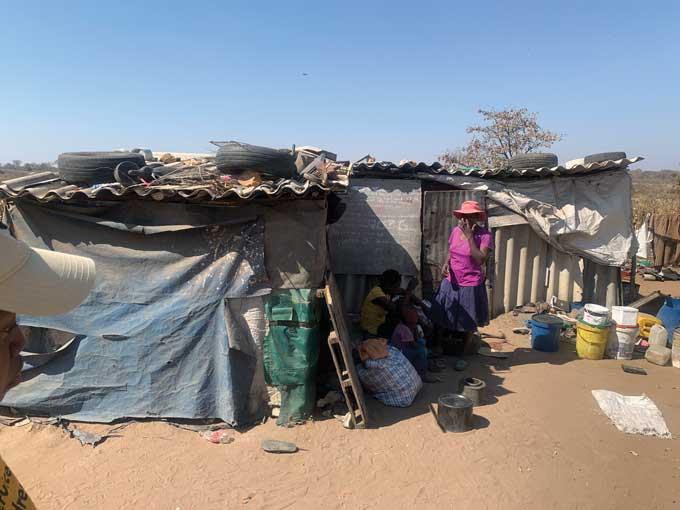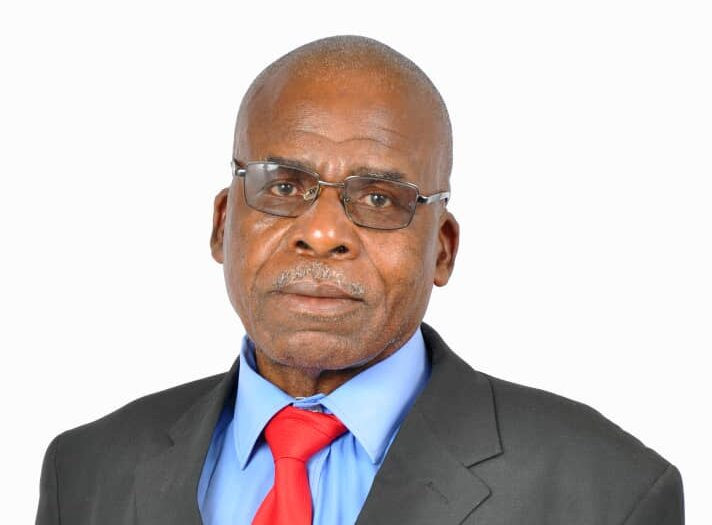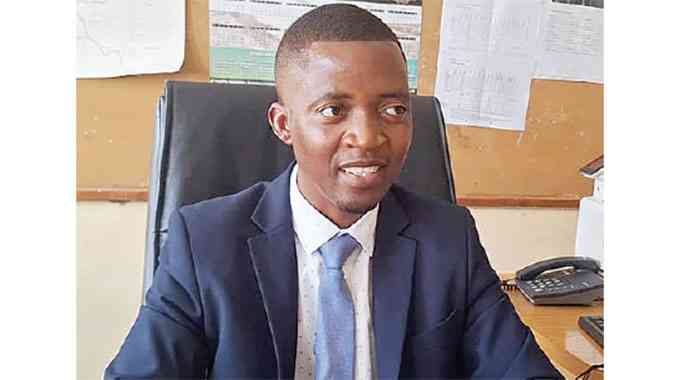
A crisis is brewing at the heart of Ngozi Mine, one of Bulawayo’s biggest squatter camps, where young girls are allegedly being lured into sex work.
The community is increasingly alarmed by reports that a local woman, notorious for her violent behaviour, is drawing vulnerable teenage girls into sex work.
This includes a schoolgirl whose education is supported by vital donor funding. Fear has silenced the community, preventing them from addressing the issue directly.
As the situation in Ngozi Mine continues to deteriorate, the community is left grappling with a profound sense of despair.
The informal settlement, already strained by economic hardships, now faces the compounded trauma of seeing its young girls drawn into dangerous and exploitative situations.
The local woman, who wields significant influence and instills fear among the community, has effectively become a symbol of the broader issues plaguing the area, which extend beyond her direct actions to include systemic failures in safeguarding vulnerable youth.
The settlement's struggles are mirrored in the behaviour of its youth, where drug addiction and substance abuse are not just isolated incidents, but widespread problems that disrupt daily life.
Disrespect towards elders and engagement in illicit relationships has strained the community and undermined efforts to foster a supportive environment for growth and education.
- Mavhunga puts DeMbare into Chibuku quarterfinals
- Bulls to charge into Zimbabwe gold stocks
- Ndiraya concerned as goals dry up
- Letters: How solar power is transforming African farms
Keep Reading
Parents are left in a state of helplessness, watching as their children, particularly their daughters, navigate an environment that increasingly normalises destructive behaviors and undermines educational aspirations.
Owing to economic difficulties in Zimbabwe, some families and young women have decided to move to the informal settlement, a few kilometres from the city centre. They are surviving by recycling metal scraps and other materials from the dumpsite.
Amahle Moyo (20)*, who is married and lives with her three young sisters at the squatter camp, said her siblings sneak out at night to meet with the woman who is allegedly behind a sex work syndicate and return early in the morning.
Moyo decided to report the issue to the village head due to concerns that her husband might wrongly believe she is sending them out and out of fear for her sisters' safety.
“I have decided to come and report this to the village head with my other neighbor,” she said.
“We have a serious situation here where one lady is taking our siblings and teaching them sex work.
“The issue has happened twice.
"At first we thought maybe these girls had made a mistake.
“Then the second time we saw, it happened today and its the third time we are being forced to come and report this.
“We reported that these teenagers g out during the night and some lady here picks them up and they go to a bar in Cowdray Park to practice sex work, the girls actually work for her.”
Moyo said when they reprimand the girls they report to the woman.
“A lady who stays here comes and picks them up to go to a bar where one teenager from this area was killed.
“My siblings are aged 18, 16, 14 and one of them is under a donor funding at school,” she said.
“If we caution them, they then go to that lady and tell her everything we have said.
“This has created tension. We decided that the best thing to do is to come to the village head for help to address the issue.”
She said the girl whose education was being funded by a donor was at risk of losing the financial support as she was now in the habit of absconding from school.
Moyo is also afraid that the situation might ruin her marriage if her husband discovers that her sisters were into sex work.
“If the donor hears about her behaviour she will lose her sponsorship. Of late she has not been performing well at school,” she said.
“I stay with my husband and if he finds out he will think it’s me sending them to do such things. "This will cause gender-based violence at home or destroy my marriage.”
Another resident said they were afraid of confronting the violent woman.
“We are scared of confronting her as she is known here to be a violent woman. She insults everyone and she can do anything,” she said.
“We fear for these kids because you never know what might happen to them out there, whether they might get into fights or get stabbed or get infected with HIV.”
The village head Sithembile Ndlovu-Tshuma said the woman would be held to account over her activities.
“I have been told about the issue and we will sit with her because she is a bad apple in the community. A serious decision will be made and actually asking her to leave this area,” Ndlovu-Tshuma said.
“As it is, we have teenage mothers we teach to do what is right. "But then some then want to experiment.
“We have a lot of issues here, some teenage mothers are now home wreckers and they forget where they are coming from. This is really sad and we don’t allow such in the community.
“In our community, we value mutual respect among our members. Teenage mothers in particular need to be aware of the importance of respecting others, especially when it comes to someone else's spouse.”
She said it was also inappropriate for teenage mothers to beinvolved with married men.
“Teenage mothers must learn to respect themselves and their bodies,” Ndlovu-Tshuma said.
“They need to be aware of the potential dangers of engaging in risky behaviour, and understand that a married man is unlikely to provide them with the stability and support they need.”
Ndlovu-Tshuma said the youth need guidance and they should understand that elders deserve respect.
“While they drink alcohol, they need to take care of themselves, especially in the places where they drink. They should not carry weapons, as it leads to harming others,” she said.
“They must learn that drugs are harmful to their health as we can clearly see.
“We have tried to engage the police to come and educate them, but we feel it wasn’t enough. “We hope they can return and continue providing this guidance.”
Ndlovu-Tshuma’s husband said: “We have tried to assist them, but it has been a challenge.
“They need to understand that when an elder speaks, they should respect their words.
“Instead, the response we often get is, ‘You’re too old; go back to your rural home and do witchcraft like others.’ What kind of response is that to an elder?”
*Not her real name









